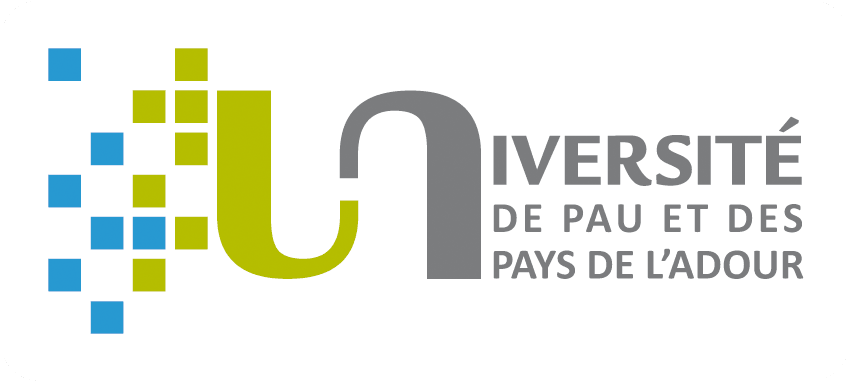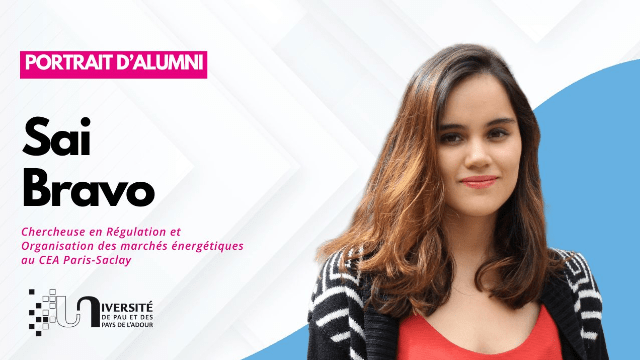Sai Bravo, Researcher in Regulation and Organization of Energy Markets at CEA Paris-Saclay
Passionate about economics, Sai Bravo joined the Toulouse School of Economics and Social Sciences. In 2018, with a Master’s degree in Market Economics and Organizations in hand, she began a PhD at UPPA on "The Role of Hydrogen in the Energy Transition."
Can you tell us about your academic background?
After earning a science-focused baccalaureate at a French high school in Ecuador, I wanted to continue studying mathematics but apply them to social science issues. I explored available programs and chose the Economics degree at the University of Toulouse Capitole, which included a two-year preparatory cycle to join the Toulouse School of Economics in the third year and continue through a Master's program. This professional training prepared me to work as an economist. At the end of my Master's, I wanted to further my education with a PhD focusing on environmental transition. Since I hadn’t pursued a research-oriented Master's, opportunities in Toulouse were limited. One of my professors guided me toward the Gas Chair at the École des Mines, which focuses on economics research and was funding a PhD at UPPA on "The Role of Hydrogen in the Energy Transition."
What are your memories of UPPA's campus in Pau?
After my years in Toulouse, I found Pau’s campus very green and a pleasant place to live. When I arrived, the economics lab had just been renovated. The research conditions were ideal, and I had access to all the necessary software for my work. My PhD supervisor, Carole Haritchabalet, head of the doctoral school and member of the Gas Chair at the École des Mines, was very supportive throughout the three years of my research. As part of the doctoral school, I took English classes that helped me achieve a C1 level—essential for a CV—and modules on public speaking, crafting pitches, and more. These practical courses were very useful and provided a nice break from the intense focus on research.
What did you do after defending your thesis in 2021?
Once again, I was torn between pure research and industry… So, I pursued a post-doc at the École Nationale de l’Aviation Civile in Toulouse. For three years, I worked on topics such as sustainable fuels for aviation and hydrogen applications in air transport. In September 2024, I joined I-Tésé at CEA as a researcher in Regulation and Organization of Energy Markets. This position has a dual focus: pure research and applied work on energy transition-related issues. It’s a role that bridges industry and research.
What three words come to mind when you think of UPPA?
A strong regional connection – Dynamic energy – A forward-thinking university with numerous energy transition projects.
Any advice for UPPA students at the start of their studies?
I would tell them that economics is an incredibly broad discipline with many career opportunities. The undergraduate degree provides a foundational skill set for all students, while Master's programs offer specialized professional training. Industry is often seen as the domain of engineers, but in the context of the energy transition, companies must navigate new regulations and decide between different decarbonization strategies. These decisions require detailed market analysis, an understanding of business performance factors, and rigorous evaluation of public policies. Economists bring specific tools to address these challenges: analyzing market behavior, identifying efficiency levers, and anticipating the impacts of strategic decisions. This expertise enables them to develop profitable, innovative, and sustainable solutions, helping companies adapt to a rapidly changing environment.
Want to know more?
Economics Bachelor’s Degree I-Tésé
Interview conducted by Florence Elman

Comments0
Please log in to see or add a comment
Suggested Articles


